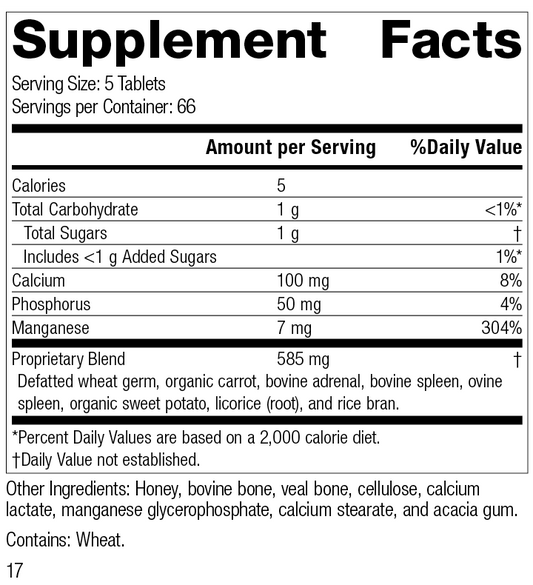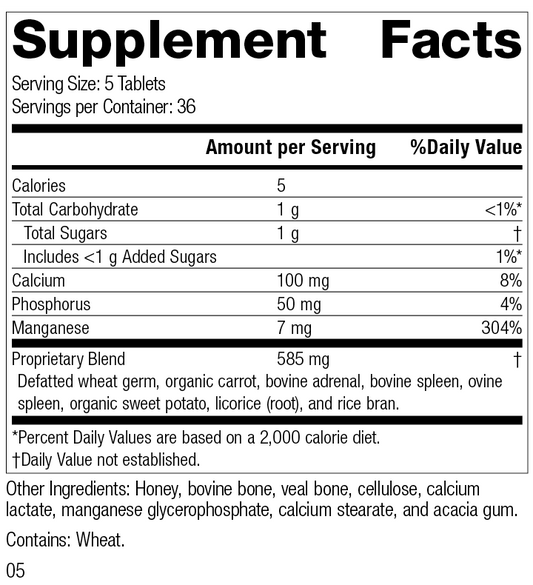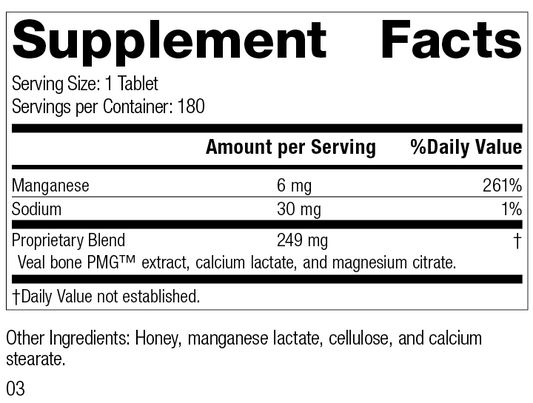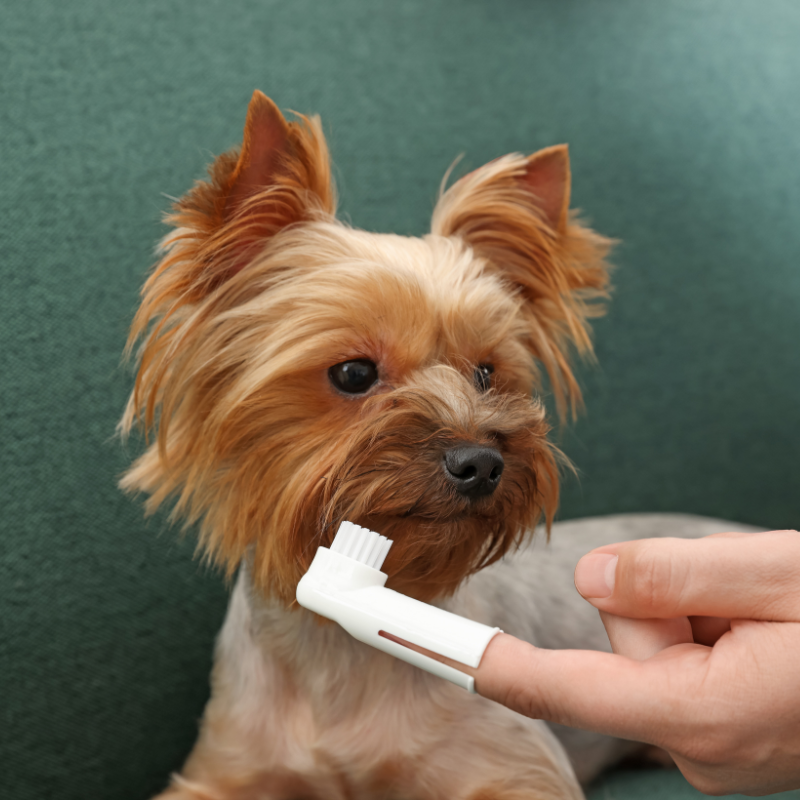-


Bio-Dent®, 330 Tablets
Bio-Dent®, 330 Tablets
Vendor:Standard Process Inc(42)Regular price $44.00 USDRegular priceUnit price perBio-Dent supports normal cell function and a healthy skeletal system*. Supports normal energy metabolism processes; Support energy production. Essential for normal skeletal development Involved in the production of cartilage and collagen A daily serving of Bio-Dent supports the body’s natural processes of growth, development, and repair of teeth Supports bone health* Excellent source of manganese Suggested Use: Five tablets per meal, or as directed. Nutrients & Ingredie...
-


Bio-Dent®, 180 Tablets
Bio-Dent®, 180 Tablets
Vendor:Standard Process Inc(42)Regular price $25.85 USDRegular priceUnit price perBio-Dent supports normal cell function and a healthy skeletal system*. Supports normal energy metabolism processes; Support energy production. Essential for normal skeletal development Involved in the production of cartilage and collagen A daily serving of Bio-Dent supports the body’s natural processes of growth, development, and repair of teeth Supports bone health* Excellent source of manganese Suggested Use: Five tablets per meal, or as directed. Nutrients & Ingredie...
-


Biost®, 180 Tablets
Biost®, 180 Tablets
Vendor:Standard Process Inc(42)Regular price $52.25 USDRegular priceUnit price perBiost contains manganese to support cellular and skeletal health and also contains veal bone PMG™ extract.* Contains veal bone PMG™ extract, which provides a unique profile of nucleotides and peptides Promotes healthy bone* Excellent source of manganese Suggested Use: One tablet per meal, or as directed. Nutrients & Ingredients Each Serving Size (1 Tablet) contains: Manganese 6 mg, Sodium 30 mg. Proprietary Blend 249 mg: Veal bone PMG™ extract, calcium lactate, and magn...
LET'S LEARN MORE ABOUT
Oral Health Support for Pets
Common Causes of Oral Health Issues in Pets
Common Symptoms of Oral Health Issues in Pets
Relief and Support for Your Pet’s Oral Health
Talk to Us
If you need help with starting up the course or getting access to the recipes and videos, please don't hesitate to contact us via call/text at +213 394 2923 / email drruthroberts@drruthroberts.com.









